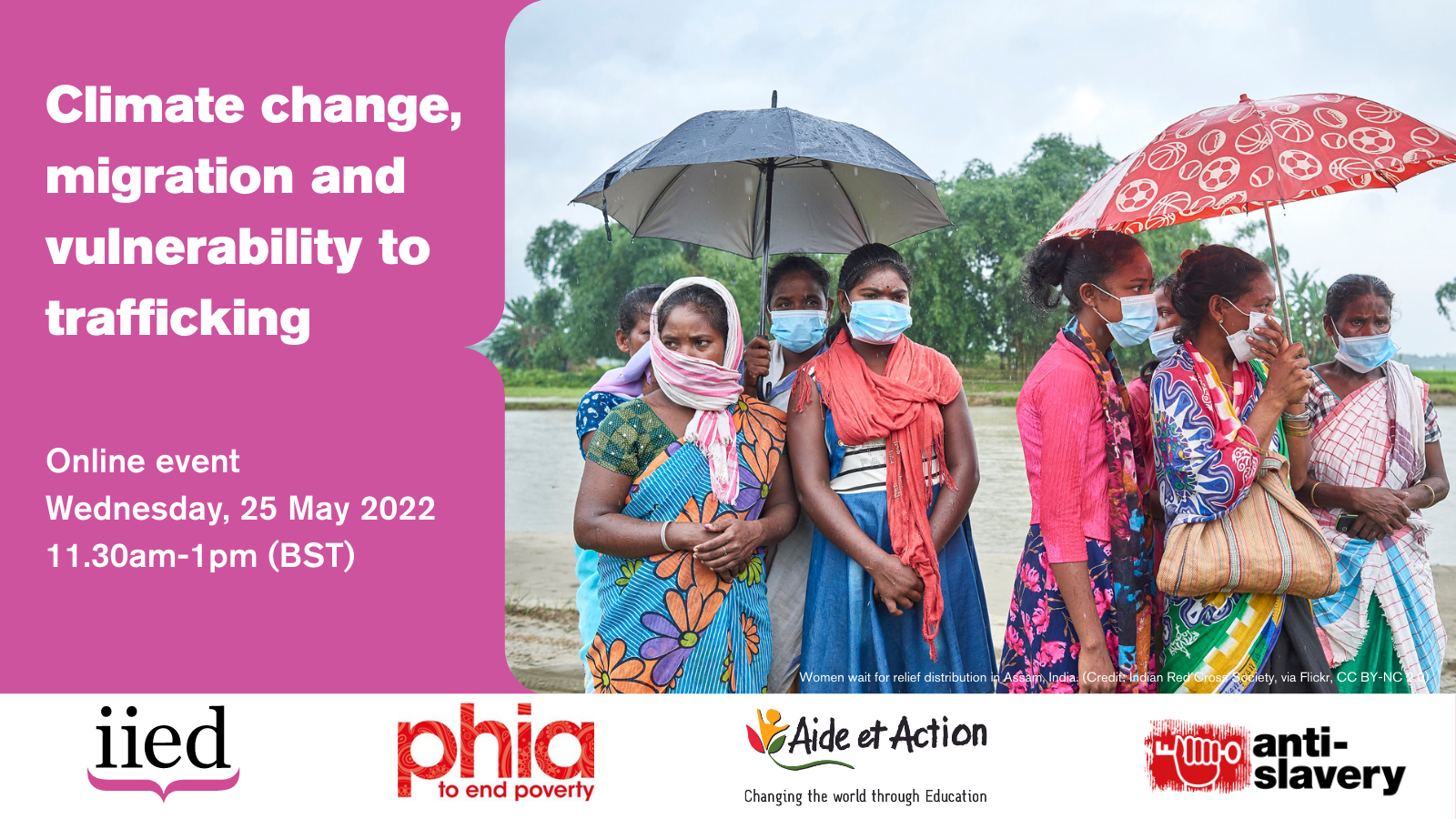Climate change, migration and vulnerability to trafficking
- English

Time
11.30am-1pm (BST)
About
Join us on 25 May for Climate change, migration and vulnerability to trafficking, a high level panel event to discuss a new report from IIED, developed in partnership with PHIA Foundation and Aide et Action South Asia.
Climate change is increasing in frequency and intensity adding pressure to an already stressed system, placing the most vulnerable countries and communities at even greater risk of harm.
Faced with devastation, people are forced to migrate in despair within and across borders to protect their lives, escape from hunger, and earn livelihoods - making them vulnerable to human trafficking and slavery.
IIED and Anti-Slavery International are exploring how climate-driven migration and displacement puts people at an increased risk of trafficking and slavery. The report is among the first to provide an empirical and compelling evidence base on the links between climate change, migration and trafficking, and unpacks the underlying drivers that should be targeted by policymakers to deal with this nexus.
Keynote speakers
- Siobhán Mullally, UN special rapporteur on trafficking in persons, especially women and children
- Cecilia Silva Bernardo, climate negotiator for Angola and for the least developed countries, and co-chair of the Adaptation Committee of the UNFCCC
Panellists
- Ritu Bharadwaj, senior researcher in IIED's Climate Change research group
- Johnson Topno, regional head of programme, Partnering Hope into Action (PHIA Foundation), India
- Umi Daniel, director of migration and education, Aide et Action South Asia, India
- Devanshu Chakravarti, researcher and independent consultant